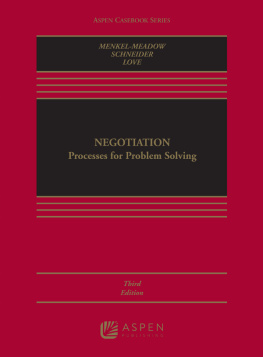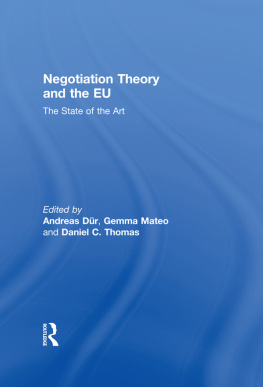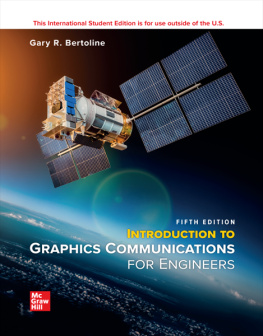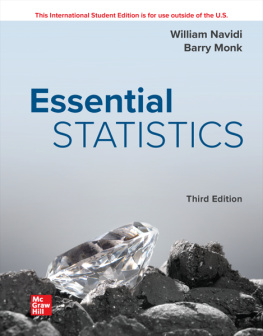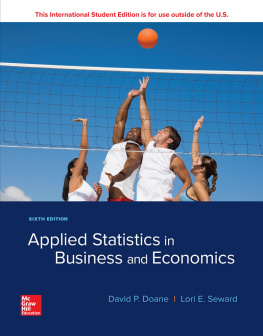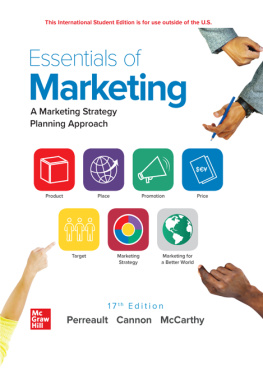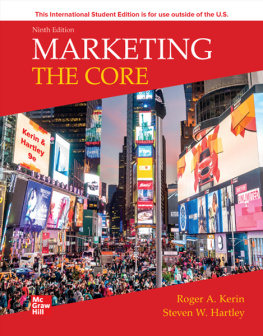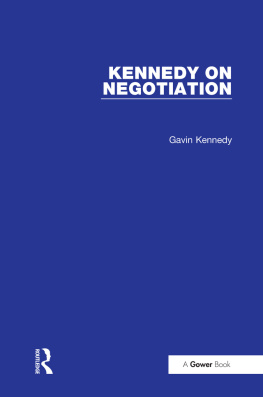
Page i
Essentials of
Negotiation
Seventh edition
Roy J. Lewicki
The Ohio State University
David M. Saunders
Queen's University
Bruce Barry
Vanderbilt University

Page ii

ESSENTIALS OF NEGOTIATION, SEVENTH EDITION
Published by McGraw-Hill Education, 2 Penn Plaza, New York, NY 10121. Copyright 2021 by McGraw-Hill Education. All rights reserved. Printed in the United States of America. No part of this publication may be reproduced or distributed in any form or by any means, or stored in a database or retrieval system, without the prior written consent of McGraw-Hill Education, including, but not limited to, in any network or other electronic storage or transmission, or broadcast for distance learning.
Some ancillaries, including electronic and print components, may not be available to customers outside the United States.
This book is printed on acid-free paper.
1 2 3 4 5 6 7 8 9 LCR 24 23 22 21 20
ISBN 978-1-260-57045-8
MHID 1-260-57045-2
Cover Image: McGraw Hill
Page iii
Dedication
We dedicate this book to all negotiation, mediation, and dispute
resolution professionals who try to make the world a more peaceful
and prosperous place.
And to John W. Minton (19462007): friend, colleague, and co-author.
Page iv
About the Authors
Roy J. Lewicki is the Irving Abramowitz Memorial Professor of Business Ethics Emeritus and Professor of Management and Human Resources Emeritus at the Max M. Fisher College of Business, The Ohio State University. He has authored or edited 40 books, as well as numerous research articles and book chapters. Professor Lewicki has served as the president of the International Association for Conflict Management, and he received its Lifetime Achievement Award in 2013. He received the Academy of Management's Distinguished Educator Award in 2005 and has been recognized as a Fellow of the International Associa tion of Conflict Management, the Academy of Management, and the Organizational Behavior Teaching Society for his contributions to the fields of teaching and research in negotiation and dispute resolution.
David M. Saunders has served as dean of the Smith School of Business at Queen's University since July 2003. Under his strategic leadership, the school has experienced dramatic growth, including the addition of new and innovative MBA, professional Master's, and executive education programs. In support of Smith's mission to develop outstanding leaders with a global perspective, Dr. Saunders has internationalized the school, adding 80 strategic partnerships around the globe. With Dr. Elspeth Murray, he developed the Analytics Climate Assessment Tool (ACAT), which is used to assess organizations' techno logical capacity, skill sets, and analytics culture to compete effectively with business analyt ics in the era of Big Data. ACAT guides the creation of tailored executive education programs to enhance organizations analytics culture, strategy, and leadership.
Bruce Barry is the Brownlee O. Currey Jr. Professor of Management at the Owen Graduate School of Management at Vanderbilt University. His research on negotiation, ethics, power, influence, and justice has appeared in numerous scholarly journals and volumes. Professor Barry is a past president of the International Association for Conflict Management and a past chair of the Academy of Management Conflict Management Division. He is editor in chief of the scholarly journal Business Ethics Quarterly and sits on the editorial boards of two others.
Page v
Preface
Welcome to the Seventh edition of Essentials of Negotiation! Again, this book represents our response to many faculty who wanted a brief version of the longer text. Negotiation (Eighth Edition). The objective of this shorter version is to provide the reader with the core concepts of negotiation in a more succinct presentation. Many faculty requested such a book for use in shorter academic courses, executive education programs, or as a companion to other resource materials. It is suitable for courses in negotiation, labor relations, conflict management, human resource management, and the like.
Overview of This Book
The organization of this volume generally follows the more complete Eighth Edition of Negotiation. The fundamental difference between this and the Eighth Edition text is that this book contains only 12 chapters, while the complete Eighth Edition contains 20 chapters. The first four chapters have only been minimally shortened for this volume, because we believe that the content is essential to any negotiation course. (The shortening process includes editing out some of the more research-oriented references and descriptions, deleting many of the boxes and sidebars, and occasionally some secondary sections.) Similarly, the last chapter is reproduced in full. The other seven chapters from Negotiation, have been included, but shortened by 2550 percent each.
For the instructor who is not familiar with Essentials (the first six editions) or Negotiation (Eighth or earlier editions), a brief overview is in order. The first five chapters introduce the reader to Negotiation Fundamentals. The first chapter introduces the field of negotiation and conflict management, describes the basic problem of interdependence with other people, and briefly explores the challenges of managing that interdependence. ) and the basic dynamics of integrative
(winwin) negotiation (, we examine the ethical standards and criteria that surround negotiation. The effective negotiator must recognize when ethical questions are relevant and what factors must be considered to address them effectively.
The next three chapters describe the fundamental psychological subprocesses of negotiation: perception, cognition, and emotion; communication; and power. In focuses on power. We look at the capabilities negotiators can muster power to pressure the other side, so as to change his or her perspective or give in to our arguments.
The next two chapters examine the social contexts in which these negotiations occur and influence how they evolve. In , we look at multiparty negotiations, when multiple individuals must work together as a group, team, or task force to solve a complex problem or make a decision.
In , we attempt to clarify how international and cross-cultural differences can shape the diverse ways that parties approach negotiations.
Finally, in , we present a new concluding chapter, summarizing the book's content and offering ten best practices principles for all negotiators.
Comparison of This Book to the Sixth Edition of Essentials
All of this book has been revised and updated. The authors reviewed every chapter, utilizing extensive feedback from faculty who have used the book in previous editions. The content in some of the chapters has been reorganized to present the material more effectively.
We have further improved the graphics format and page layout of the book to make it visually more interesting and readable.
The authors have published a book of readings and classroom activities, Negotiation: Readings, Exercises and Cases, Seventh Edition, edited by Roy Lewicki, Bruce Barry, and David Saunders. This book has not been revised, but all of the readings, role plays, cases, and questionnaires are still available online. Adopters of Essentials can purchase these activities individually or package them together with chapters from Negotiation or Essentials of Negotiation . Consult McGraw Hill's Create services for more information.


